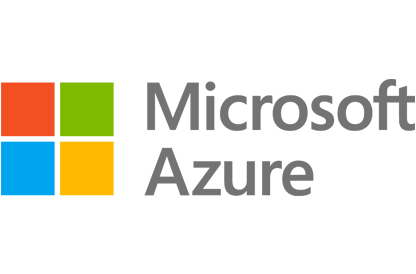Why OpenText
Why OpenText
Overview Why OpenText
OpenText brings decades of expertise to help you unlock data, connect people and processes, and fuel AI with trust
Manage and connect data
Unify data seamlessly across your enterprise to eliminate silos, improve collaboration, and reduce risks
AI-ready information
Get AI-ready and transform your data into structured, accessible, optimized information
Built-in security and compliance
Meet regulatory and compliance requirements and protect your information throughout its lifecycle
Empowering people
Overview Empowering people
OpenText helps people manage content, automate work, use AI, and collaborate to boost productivity
Customers
See how thousands of companies around the world are succeeding with innovative solutions from OpenText
Employees
Our people are our greatest asset; they are the life of the OpenText brand and values
Corporate Responsibility
Learn how we aspire to advance societal goals and accelerate positive change
Partners
Find a highly skilled OpenText partner with the right solution to enable digital transformation
How we compare
Content Management
Service Management
Deploy anywhere
Overview Deployment options
Explore scalable and flexible deployment options for global organizations of any size
Sovereign cloud
Local control. Global scale. Trusted AI
Private cloud
Unlock the value of the cloud while maintaining control and compliance
On-premises
Maintain full control of your data on your own infrastructure
Public cloud
Protect, scale, and use business information in your cloud of choice
AI leadership
Overview Aviator AI
See information in new ways
OpenText™ Aviator™ AI
AI that understands your business, your data, and your goals
OpenText™ MyAviator
Say hello to faster decisions. Your secure personal AI assistant is ready to get to work
OpenText™ Business Network Aviator™
Gain better insights with generative AI for supply chains
OpenText™ Content Aviator™
Power work with AI content management and an intelligent AI content assistant
OpenText™ Cybersecurity Aviator™
Improve your security posture with AI cybersecurity and agile threat detection
OpenText™ DevOps Aviator™
Enable faster app delivery, development, and automated software testing
OpenText™ Experience Aviator™
Elevate customer communications and experiences for customer success
OpenText™ Fax Aviator™
Turn every fax into instant action with AI
OpenText™ Service Management Aviator™
Empower users, service agents, and IT staff to find the answers they need
Aviator AI
Overview Aviator AI
See information in new ways
OpenText™ Aviator™ AI
AI that understands your business, your data, and your goals
OpenText™ MyAviator
Say hello to faster decisions. Your secure personal AI assistant is ready to get to work
OpenText™ Business Network Aviator™
Gain better insights with generative AI for supply chains
OpenText™ Content Aviator™
Power work with AI content management and an intelligent AI content assistant
OpenText™ Cybersecurity Aviator™
Improve your security posture with AI cybersecurity and agile threat detection
OpenText™ DevOps Aviator™
Enable faster app delivery, development, and automated software testing
OpenText™ Experience Aviator™
Elevate customer communications and experiences for customer success
OpenText™ Fax Aviator™
Turn every fax into instant action with AI
OpenText™ Service Management Aviator™
Empower users, service agents, and IT staff to find the answers they need
Analytics
Overview Analytics
Predict, act, and win with real-time analytics on a smarter data platform
Business Network
Overview Business Network
Connect once, reach anything with a secure B2B integration platform
Content
Overview Content
Reimagine knowledge with AI-ready content management solutions
OpenText™ Content Aviator™(AI)
Supercharge intelligent workspaces with AI to modernize work
Cybersecurity
Overview Cybersecurity
Integrated cybersecurity solutions for enterprise protection
OpenText Cybersecurity for SMBs & MSPs
Purpose built data protection and security solutions
OpenText™ Cybersecurity Aviator™(AI)
Reinvent threat hunting to improve security posture with the power of agile AI
DevOps
Overview DevOps
Ship better software—faster—with AI-driven DevOps automation, testing, and quality
Experience and Fax
Overview Experience and Fax
Reimagine conversations with unforgettable customer experiences
OpenText™ Experience Aviator™(AI)
Transform customer communications with private generative AI
OpenText™ Fax Aviator™(AI)
Turn faxes into workflow-ready data with AI
Legal Tech
Overview Legal Tech
Make smarter decisions with AI-powered legal software and services
OpenText™ eDiscovery
Accelerate eDiscovery with AI-driven speed and precision
OpenText™ Investigation
Optimize strategy with early case assessment and investigation tools
OpenText™ Core Insight
Get smarter eDiscovery with advanced TAR and automated document review
OpenText™ Core Legal Hold
Automate legal holds to eliminate risky and time-consuming processes
OpenText™ Legal Knowledge Management
Unlock knowledge and legal insights across content silos
Observability and Service Management
Overview Observability and Service Management
Get the clarity needed to cut the cost and complexity of IT operations
OpenText™ Service Management Aviator™(AI)
Redefine Tier 1 business support functions with self-service capabilities from private generative AI
APIs
Overview APIs
Build custom applications using proven OpenText Information Management technology
OpenText™ API Services
Build it your way with OpenText Cloud APIs that create the real-time information flows that enable custom applications and workflows
Device and Data Protection
Overview Device and Data Protection
Protect what matters, recover when it counts
Unified Endpoint Management Tools
- OpenText™ Endpoint Management
- OpenText™ ZENworks Suite
- OpenText™ ZENworks Service Desk
- OpenText™ ZENworks Configuration Management
- OpenText™ ZENworks Endpoint Security Management
- OpenText™ ZENworks Full Disk Encryption
- OpenText™ ZENworks Endpoint Software Patch Management
- OpenText™ ZENworks Asset Management
Solutions
Trusted Data & AI
Overview Trusted Data & AI
Secure information management meets trusted AI
OpenText AI Data Platform
A unified data framework to elevate data and AI trust
OpenText™ Aviator™ Studio
A place where you can build, deploy, and iterate on agents in your data's language
OpenText Discovery
A set of tools to help ingest data and automate metadata tagging to fuel AI
OpenText Data Compliance
A suite of services and APIs that make governance proactive and persistent
OpenText Aviator AI Services
Professional services experts who help you on your AI journey
Information Reimagined
Overview Information Reimagined
Get greater visibility and sharper insights from AI-driven information management. Ready to see how?
Knowledge reimagined
Transform daily work with enterprise content management powered by AI
Service Management reimagined
Cut the cost and complexity of IT service management, AIOps, and observability
Connections reimagined
AI-powered B2B integration for supply chain success
Conversations reimagined
Drive value, growth, and loyalty with connected customer experiences
Engineering reimagined
Agile development and software delivery? It only seems impossible
Security reimagined
Cybersecurity for the Enterprise
Decisions reimagined
Unlock insights with AI data analytics
Artificial Intelligence
Overview Aviator AI
See information in new ways
OpenText™ Aviator™ AI
AI that understands your business, your data, and your goals
OpenText™ MyAviator
Say hello to faster decisions. Your secure personal AI assistant is ready to get to work
OpenText™ Business Network Aviator™
Gain better insights with generative AI for supply chains
OpenText™ Content Aviator™
Power work with AI content management and an intelligent AI content assistant
OpenText™ Cybersecurity Aviator™
Improve your security posture with AI cybersecurity and agile threat detection
OpenText™ DevOps Aviator™
Enable faster app delivery, development, and automated software testing
OpenText™ Experience Aviator™
Elevate customer communications and experiences for customer success
OpenText™ Fax Aviator™
Turn every fax into instant action with AI
OpenText™ Service Management Aviator™
Empower users, service agents, and IT staff to find the answers they need
Industry
Overview Industry solutions
Improve efficiency, security, and customer satisfaction with OpenText
Energy and resources
Transform energy and resources operations with cloud, cybersecurity, and AI
Financial services
Boost customer experience, compliance, and efficiency with AI
Government
Reimagine your mission with government-secure information management
Healthcare and life sciences
Improve care delivery and patient engagement with AI-powered solutions
Legal
Modernize legal teams with automated, AI-powered legal tech solutions
Manufacturing
Modernize manufacturing operations and logistics to reduce costs and ensure compliance
Retail and consumer goods
Enhance consumer engagement with omnichannel retail solutions and AI
Enterprise Application
Overview Solutions for Enterprise Applications
Run processes faster and with less risk
Services
Services
Overview Services
Achieve digital transformation with guidance from certified experts
Professional Services
Modernize your information management with certified experts
Customer Success Services
Meet business goals with expert guidance, managed services, and more
Support Services
Turn support into your strategic advantage
Managed Services
Free up your internal teams with expert IT service management
Learning Services
Discover training options to help users of all skill levels effectively adopt and use OpenText products
Professional Services
Overview Professional Services
Modernize your information management with certified experts
Customer Success Services
Overview Customer Success Services
Meet business goals with expert guidance, managed services, and more
Support Services
Overview Support Services
Turn support into your strategic advantage
Managed Services
Overview Managed Services
Free up your internal teams with expert IT service management
Learning Services
Overview Learning Services
Discover training options to help users of all skill levels effectively adopt and use OpenText products
Partners
Find a Partner
Overview Find a partner
Find a highly skilled OpenText partner with the right solution to enable digital transformation
Cloud Partners
Overview Cloud Partners
OpenText partners with leading cloud infrastructure providers to offer the flexibility to run OpenText solutions anywhere
Enterprise Application Partners
Overview Enterprise Application Partners
OpenText partners with top enterprise app providers to unlock unstructured content for better business insights
Partner Solutions
Overview Partner Solutions
Discover flexible and innovative offerings designed to add value to OpenText solutions
Resources for Partners
Overview Resources for Partners
Discover the resources available to support and grow Partner capabilities
Support
Overview Customer Support
Get expert product and service support to accelerate issue resolution and keep business flows running efficiently
Resources
Overview Resources
Explore detailed services and consulting presentations, briefs, documentation and other resources
Choose your region:
Europe, Middle East and Africa
Asia–Pacific
 Office of the Public Service Commission (OPSC)
Office of the Public Service Commission (OPSC)
Afrocentric IP partners with OpenText in successfully delivering NetIQ Identity Governance for audit compliance through regular access review process with improved business participation

Products and services
Solution group
Outcomes
- 50 percent security improvement through elimination of orphaned and dormant accounts
- Audit compliance in move from six monthly to monthly access reviews
- Externally hosted applications and privileged accounts included in the automated access review process
- Increased business participation so that certified data is a true reflection
Benefits
-
50%
security improvement through elimination of orphaned and dormant accounts
-
Audit
compliance in move from six monthly to monthly access reviews
Challenge
Replace a manual access review process, which was cumbersome, manual and time-consuming. OPSC wanted to improve business participation and needed a user-friendly solution so that it could increase its access reviews from every six months to monthly to satisfy audit requirements.
Regular user access reviews serve to verify and validate that user access to systems and applications is appropriate given their roles and responsibilities within the organization.
The OPSC conducted its access reviews in an entirely manual fashion, supported by spreadsheets which were reviewed and certified. Mpho Basitere, Head of IT for OPSC, explains: “The process was cumbersome and time-consuming and by the time the review was completed, the situation would have changed again, so it was never a true reflection. Access reviews were conducted twice every year, but audit findings showed this was not frequently enough.”
Some of the OPSC applications were hosted by external providers. For access review exercises they would need to request the information from the application owners and it would often take 2-4 weeks before all the information was collected. From start to finish the certification process would take 6–8 weeks to complete. Business participation was hard to secure as the process was so manual and this resulted in inadequate reviews and certifications.
The OPSC wanted a solution to help them automate access review and certification so that they could perform monthly reviews. Automatic scheduling was a must too, so that it does not become an onerous task for the identity governance administrator.
Details
Solution
OpenText partner Afrocentric IP presented Identity Governance, and immediately OPSC could see the potential, according to Basitere:
“It was clear that, using Identity Governance, we could satisfy auditors and business managers with intuitive user-friendly and automated access certification processes and reports. It was a real worry that our business participation was low as this could lead to unidentified orphan or dormant accounts which ultimately present a security risk to the organization.”
Identity Governance ensures initiatives stay on schedule with automatic system reminders to business reviewers and progress updates for administrators. This means that the identity governance administrator only has minimal involvement to review any escalated issues.
With a combination of internally and externally hosted applications, such as BAS, Logis and Persal at OPSC, it was difficult to conduct enterprise-wide access certifications. Using Identity Governance, data from all applications is collected using a wide range of access protocols so that all relevant applications are included in the process.
Once the solution was operational, increased business participation soon followed. Basitere comments: “Access review reporting is made so much easier through Identity Governance. We can conduct far more granular reviews, including privileged user account reviews, as all the information is available within Identity Governance.”
Access revocations are still dealt with manually, but OPSC has included automation of this on its roadmap and Identity Governance fully supports this.
Using Identity Governance, we have reduced our security risk by at least 50 percent by eliminating any orphaned or dormant accounts, thus closing the security loop available. It has also brought us some cost savings as we will clearly not pay maintenance and renewal charges on those accounts.
Results
Access reviews are now conducted on a monthly basis, which satisfies auditors, and means that the certified information is a true reflection of what currently exists in production. This process requires no paperwork and minimal manual intervention. Basitere: “Using Identity Governance, we have reduced our security risk by at least 50 percent by eliminating any orphaned or dormant accounts, thus closing the security loop available. It has also brought us some cost savings as we will clearly not pay maintenance and renewal charges on those accounts.”
He concludes: “The ability to identify, review, and certify privileged accounts has been really helpful to us. Overall, we are very pleased to have found a solution which has complete buy-in from our business audiences. The monthly access reviews just happen and we always feel confident about the outcome of them. Micro Focus (now OpenText) and Afrocentric were fantastic partners for us during this project for us during this project and we can see how expanding our use of Identity Governance will bring us further efficiencies.”
The monthly access reviews just happen and we always feel confident about the outcome of them. Micro Focus (now OpenText) and Afrocentric were fantastic partners for us during this project and we can see how expanding our use of Identity Governance will bring us further efficiencies.
About Office of the Public Service Commission (OPSC)

The OPSC is tasked and empowered to investigate, monitor, and evaluate the organization and administration of the public service. This mandate includes evaluation of achievements, and promoting measures that would ensure effective and efficient performance within the public service.





